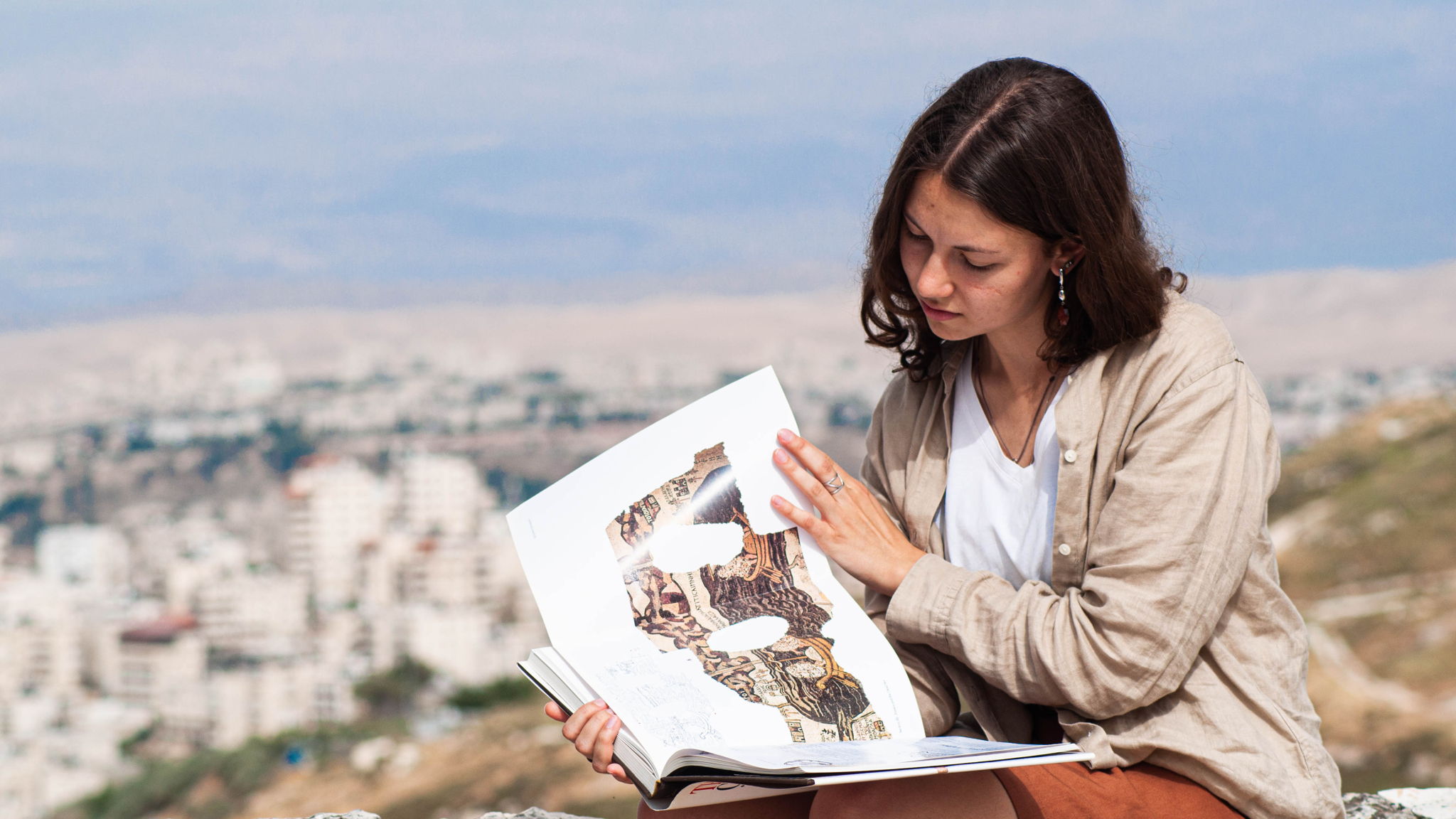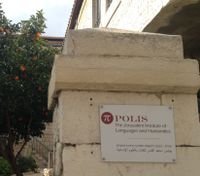Polis Institute: Publish a New Testament Keywords Dictionary
New York, New York
Peer-to-peer fundraising
Create a personal goal to help raise money for this fundraiser. Learn more
Create a peer-to-peer fundraiserPeer-to-peer fundraising
Create a personal goal to help raise money for this fundraiser. Learn more
Create a peer-to-peer fundraiserThe Words of Scripture. Meaning, Scope, Transmission
Polis. The Jerusalem Institute of Languages and Humanities
Situation
Since the end of the twentieth century, the sharp reduction in the amount of Greek taught in high schools and universities has led to a drastic decrease in the number of Hellenists. The same is true for biblical Hebrew; only Christians who have spent extended periods in Israel are able to read the original rabbinic texts with a certain degree of ease. The quality of biblical studies has suffered. Serious scholarly publications on the meaning of biblical words are still not widely available to the general public. Yet, a growing number of people aspire to a deeper understanding of Scripture. The educated public demands good translations.
Project
Writing and publishing a book (200 pages) that identifies translation challenges and defines Scripture words and phrases from the philological point of view and reflecting their reception in the writings of the Fathers of the Church, the Jewish sources, and other Medieval writers. After an introduction on the method (the meaning of the words and their translations), key words are classified in alphabetical order: for example, words related to ministries in the Church (presbyteros, diakonos, episkopos), the term charis, and Marian controversies. Each lemma is explained in two or three pages followed by a bibliography. An index of Scripture passages and words quoted closes the work. It will be of interest to all educated people as well as to specialists. It will be especially useful to Catholics wanting to understand better the words of Scripture and the Tradition of the Church as well as to non Catholics who wish to know how the New Testament was understood and explained during the first centuries of the Church. How one should understand the words of Mary to the angel Gabriel in Luke 1:34 '"How can this be since I have no husband" if she is already betrothed to Joseph? What does the phrase "the brothers of Jesus" mean? What is the meaning of kekharitômenê in Luke 1:28?
Production
Two years of work, under the direction of Christophe Rico. A student who holds an MA in ancient Philology, with a solid religious culture and knowledge of linguistics, will assist him in the work of synthesis and wording of the text. A proofreading will be done by Mgr Guillaume Derville, theologian (Pontifical University of the Holy Cross, Rome). There will be two editions of the book, in English and in French.
Christophe Rico, linguist, holds a doctorate in ancient Greek and a habilitation to direct research. He is a member of the faculty of the University of Strasbourg (Faculty of Catholic Theology), and is an ordinary professor at the École Biblique et Archéologique Française de Jérusalem, where he teaches specialized courses on the semantics of the New Testament, the philological study of the Gospel of John, and the biblical theme of the Tree of Life. He has published two monographs on the philology of the Old and New Testaments, as well as language methods (Greek, Latin, Coptic). He has co-edited four academic conferences and published 65 scientific articles on general linguistics, New Testament Greek and language didactics.
Since 2011, Christophe Rico has been the dean of the Polis Institute, located in Jerusalem, in a neighborhood between the East and West of the city. Ancient languages (Greek, Latin, Biblical Hebrew, Classical Syriac, Coptic, Classical Arabic) are taught there as living languages in full immersion, according to an original method, the Polis method, which has already been the subject of studies or mentions in some twenty scientific articles. The goal of the Polis Institute is the renewal of the human sciences, notably through the resurrection of the languages that are at the origin of Western civilization.
Budget
The 75 000 USD budget will be used to cover the expenses related to two editions of the dictionary, one in English and one in French.
The expected breakdown of the project is as follows:
* Scholarship and stipend for two years for an MA student: 25 000 USD
* Design and layout for two editions: 19 000 USD
* IT materials: 6000 USD
* Review: 8 000 USD
* Publication and promotion costs: 7 000 USD
* Administrative costs and miscellaneous expenses: 10 000 USD
Notes:
* The selection process of the MA student uses objective criteria based on the academic needs of the project. The process will follow the regular scholarship process of the Polis Institute and is validated by the executive committee of the Institute.
* The budget is provisional and each line may vary by 15% during execution
* In case of savings on the budget project, the funds will be exclusively used to fund similar academic publications of the Polis Institute Press
* The work to be done by Prof. Christophe Rico and Mgr Guillaume Derville is voluntary and will not be remunerated by the project budget






